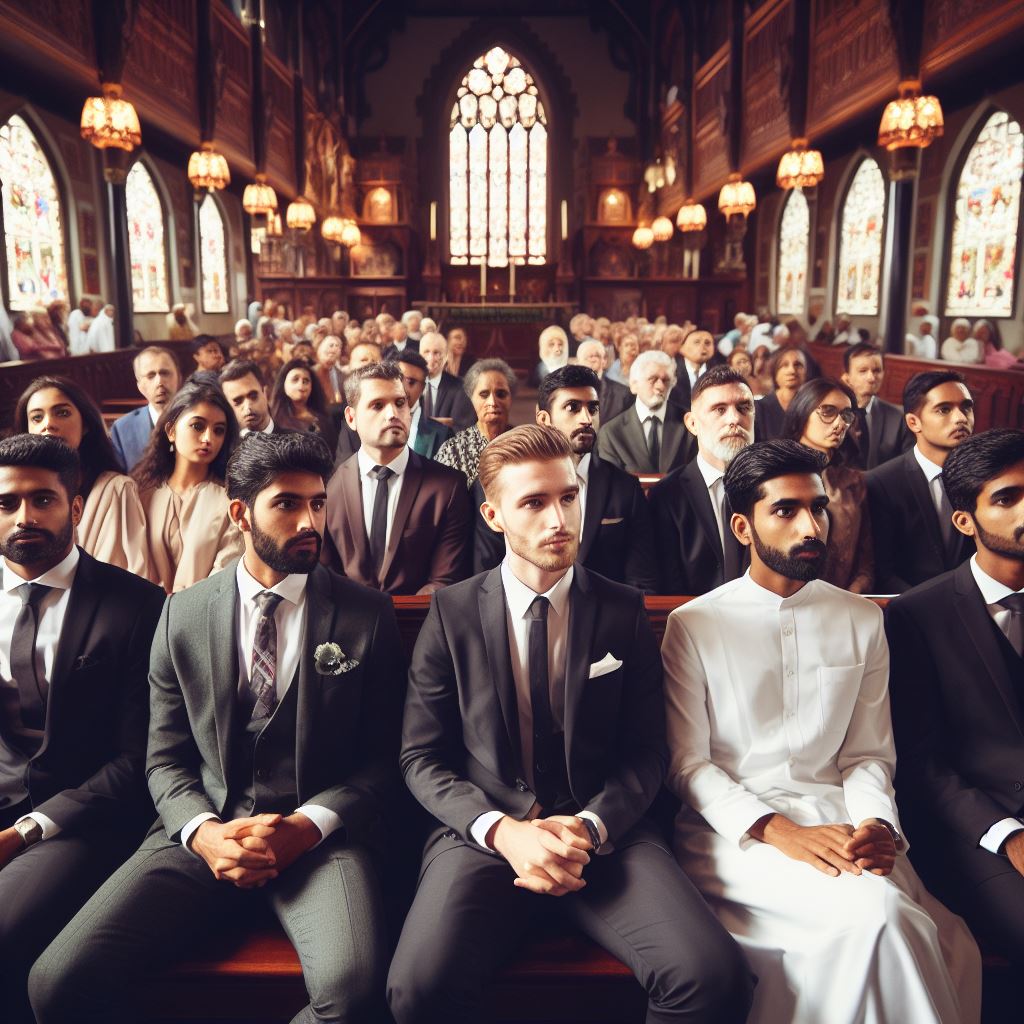
Facing ethical dilemmas in modern times has proven to be a significant hurdle for the Christian community. The transformation of societal norms, along with extraordinary advancements in medical technology, is causing sincere believers to reassess and often redefine their traditional perspectives. The complexities of bioethical issues, for instance, bring forth unparalleled difficulties.
Procedures with potentially significant impact, such as reproductive technologies, euthanasia, and medical aid in dying, force Christians to grapple with severe moral debates that directly challenge their faith. As society progresses and adapts to these cutting-edge technologies, people of faith must strive to comprehend where their doctrines fit amidst these advancements.
No longer is it an option to dismiss such matters outright. In fact, it becomes paramount to collectively seek understanding and establish a meaningful dialog within these changing frameworks. The task for conscientious Christians is to discover and uphold a commitment to maintaining the dignity of human life, which is at the heart of Christian ethics.
Life and death affairs are invariably fraught with discord and contention. Although such issues were not necessary for earlier generations of believers to consider, modern Christians find it essential to address these topics as part of the evolving societal fabric. The challenge comes in generating thoughtful and respectful engagement with these topics while sustainably adhering to Christian values.
The modern ethical landscape warrants substantial reflection from believers. Documented teachings in Christianity often address various aspects of life, but might not cover these emerging challenges in contemporary society explicitly. Therefore, it becomes inevitable to derive new understandings from these teachings, thereby infusing them with insights from current experiences.
The resulting wave of debate and consequential conflict within the church is not an unwelcome phenomenon. Instead, it marks an important stage of growth for the Christian community in today’s world. Each new ethical challenge presents an opportunity for numerous dialogues, linking age-old traditions with modern realities.
Navigating these moral quandaries is an integral part of being a Christian in the modern age. Staying true to one’s faith, while engaging with these ethical dilemmas on various levels, is key. The search for harmony in the meeting of faith and evolving society continues to resonate as a crucial task for Christians in modern times.
Traditional Principles Vs. Contemporary Society
There’s often a noticeable conflict between the ages-old principles of Christian teachings and the evolving values reflected in modern culture. This dichotomy arises due to the challenge of preserving the foundational, immutable Christian teachings while remaining responsive and relevant in an ever-changing society.
Sexual diversity is a prime point of conflict in this instance. Society has grown more accepting and open to varying gender identities and sexual orientations, but within the Christian community, this has been a slower shift. Homosexual and transgender individuals continue to strive for acceptance within the Christian community. The challenge for Christian stakeholders lie in how to reconcile their long-held beliefs with the evolving societal norms. It’s about fostering understanding and empathy for all, yet doing so without destabilizing the doctrines they cherish.
The debate on the place and role of women within the confines of the church is another potent issue worth highlighting. The journey towards achieving gender equilibrium has been long and arduous, yet female leadership within Christian institutions remains a hotly debated subject. Despite societal advancements leaning towards gender equality, there are still sizable segments that zealously adhere to traditional teachings.

There is a strong call for equal representation in these spaces. The dismantling of age-old patriarchal structures within the church is a proposition that many people, especially the younger generation, are battling for. It’s a matter of contention that causes significant discomfort among the conservative communities that advocate for strict adherence to traditional teachings.
Preserving traditional principles while ushering in the changes that contemporary society calls for is a complex balancing act, no less. It entails a reassessment and readjusting of time-honored beliefs, doctrines, and practices to keep pace with global advancements and modern thought processes. Thus, this often controversial debate continues, echoing throughout faith communities worldwide, as they navigate this treacherous path between preservation and change. The test is in maintaining the essence of the Christian faith while staying relevant, accepting, and welcoming in a dynamically evolving world.
Interpreting Biblical Teachings in the Modern Age
Understanding and interpreting Biblical teachings in the context of a modern era is indeed a considerable challenge facing Christianity in contemporary society. The Bible, having been crafted in an era and situation fundamentally different from our present circumstances, is now analyzed and grappled with in present-day contexts and translations that original authors may not have thought would ever exist. These interpretations can lead to a wide range of conclusions, each bringing something new and unique to the table, and occasionally, inspiring rather controversial practices and thoughts.
This undeniable diversity in Bible interpretation has resulted in divisions within the umbrella of Christianity, directly leading to a multitude of denominations within the religion. These denominations can vary widely, including everything from traditional factions that fall back on a more literal reading of Scripture, adhering closely to the original text, to progressive groups that take on a metaphorical or contextual reading approach when it comes to the Holy Scripture. These progressive factions often focus on drawing the underlying meaning from the text, rather than interpreting it verbatim, which in itself is a testament to the range of interpretations and the challenges associated with this.
A significant challenge for Christianity in this present age, therefore, lies in utilizing the wisdom of biblical teachings while ensuring they remain relevant and relatable in the face of modern realities. It becomes of utmost importance, then, to foster open, respectful, and inclusive debates around these divergent interpretations – ones that can bridge existing differences while also nurturing unity amongst Christian believers, irrespective of their choice of interpretation.
As it continues to grapple with the realities of a rapidly changing society, Christianity needs to strike a balance between maintaining the core essence and tenets of faith, and adapting to an evolving world. This journey of facing these complex challenges and exploring the various potentials paving the path of Christianity in these modern times is an engagement well worth noting. It allows for a fascinating glimpse into Christianity’s ongoing resolve to confront and weave with the constantly fluctuating fabric of contemporary society. As Christianity continues to evolve, these often fierce debates will no doubt play a pivotal role in shaping its trajectory – contributing to its rich, diverse tapestry, and ultimately, challenging and testing the strength and resilience of its core beliefs and foundations.